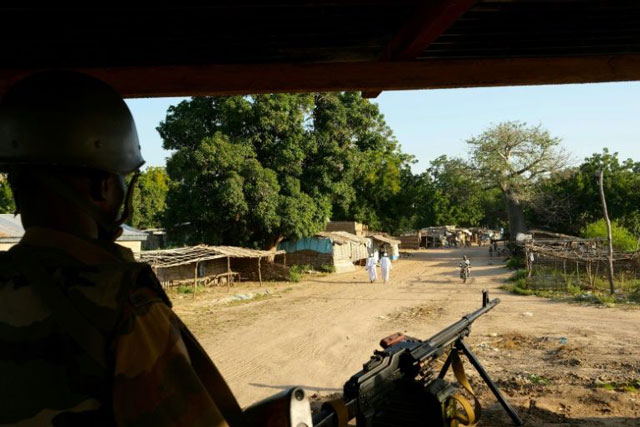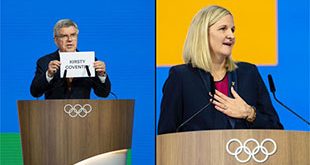
Birao, Central African Republic | AFP | A heavy silence hangs in the dusty alleys of Birao, in the extreme northeast of Central African Republic, where figures only rarely wander between the empty houses and reed hedges.
Since September, Birao has been hit hard by fighting between armed groups despite a peace agreement that had helped bring a precarious calm to a country ravaged by years of civil war.
Most of Birao’s 14,000 inhabitants are now refugees camped out in makeshift tents next to a UN base, only metres from the abandoned homes that few can imagine returning to anytime soon.
Birao highlights the complexities of the Central African Republic’s fragile peace deal among 14 armed groups and the government – an attempt to end a conflict that has killed thousands and displaced a fifth of the 4.5 million population in six years.
Rumours of another attack by the Popular Front for the Renaissance of Central Africa (FPRC) triggered the latest surge of displaced to the camp, where water is already scarce as the dry season begins.
Only the town’s central market shows any sign of life. Patrols of UN peacekeepers in blue helmets pass by the pick-up trucks of turbaned militiamen under the indifferent gaze of the elders who sip tea in the shade of the acacias.
Birao is a hotbed of rebellion that has escaped state control for decades. Since 2014, the FPRC, one of the country’s main rebel movements, has controlled the region and the lucrative tax of goods from neighbouring Sudan.
Its military leader, Abdoulaye Hissene and several of his officers belong to the Runga ethnic group, a minority in Birao but well established in the local economy.
That is enough to stir up old tensions with the Kara ethnic group, about 40 percent of the population of Birao. They also make up the vast majority of members in a rival militia, the Movement of Central African Liberators for Justice or MCLJ.
– Ethnic tensions –
In late August, the son of the mayor-sultan of Birao, a Kara, was murdered by a FRPC militiaman, sparking new fighting. After an initial clash in September 1, the more powerful FPRC was defeated and driven from the town two weeks later by the MCLJ and armed Kara civilians.
In the chaos, wealthy homes in the Runga district were looted and burned, and Birao’s elders are now refugees.
The ethnic Runga are now hunkering down near the airport under UN protection, separated from the Kara by 15 kilometres (10 miles) of dirt road.
“The bandits that chased us out have blockaded the road and are preventing food from reaching us. It is more than savage,” said Gabriel Redjal, head of the camp.
“Now is not the time for Runga to be living in Birao, we should be led far from here,” he said.
International observers say the crisis could degenerate into open warfare and spread to neighbouring regions.
The FPRC has pledged to retake the town as soon as seasonal rains end, while the MLCJ continues to edge into its adversary’s territory and head towards the town of Tissi.
– Ethnic or political –
“Within a week, something is going to happen there,” says Kara leader Adramane Ramadan with a sly smile.
The new chief of Birao receives visitors at home, surrounded by heavily armed gunmen.
“They are not MLCJ militiamen,” he insists, while denying any ties with the group.
“This is not a war between the MLCJ and the FPRC, it’s an ethnic war.”
That revives bad memories in a country marred by years of ethnic violence.
The Runga elders see the situation differently.
“There has always been some jealousy, but the Kara and Runga live well together,” said Gabriel Redjal. “There is some political manipulation behind all that, and the manipulation runs deep.”
He was talking about Kara leader Ramadan, who openly admits he would like to be mayor of Birao, where ethnic strength has always determined the outcome of local elections.
But the comments could also be directed at MLCJ chief Gilbert Toumou Deya, who sits 800 kilometres away in Bangui as minister charged with relations with armed groups.
In 2020, the country’s presidential election could be determined by rural voters.
Back at the airport, an FPRC commander, captain Moussa insists that “the FPRC was respecting the peace accord.”
“Those that did not respect it, who attacked us, are there with their weapons in town. Where is the justice?”
Having traded his uniform for a track suit, the former officer concluded that “there is no truth in the Central African Republic. We will never resolve the Birao affair.”
 The Independent Uganda: You get the Truth we Pay the Price
The Independent Uganda: You get the Truth we Pay the Price



